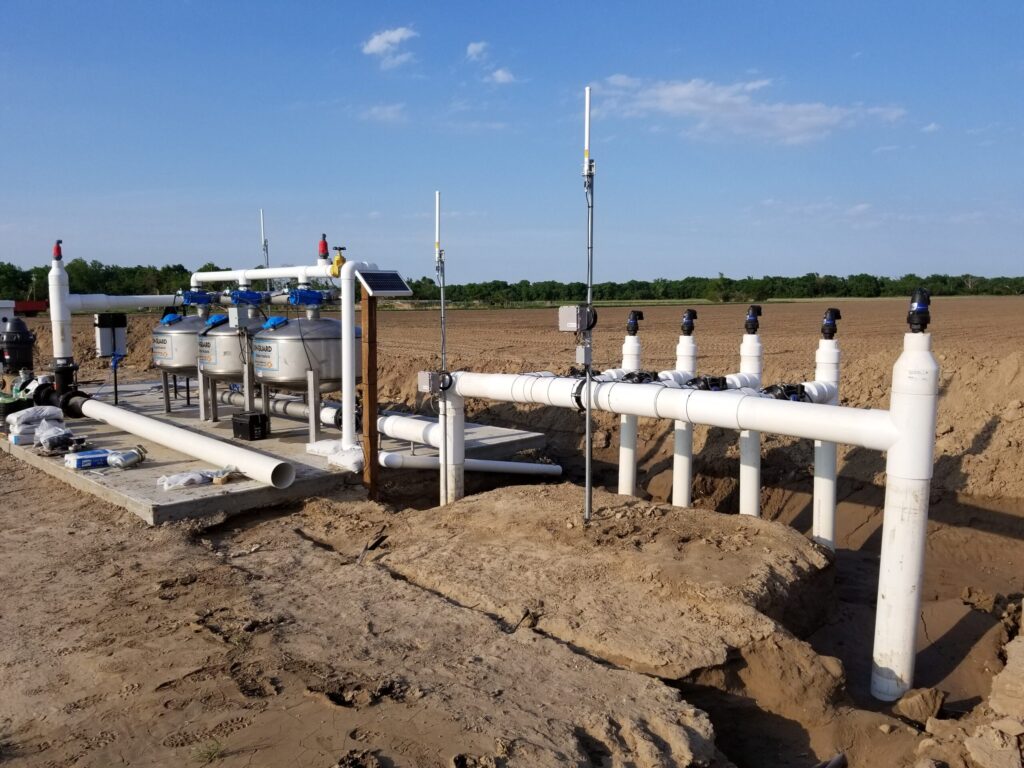Seasonal Irrigation Maintenance Tips for Optimal Performance
Seasonal Irrigation Maintenance Tips for Optimal Performance
When it comes to maintaining a vibrant and healthy landscape, your irrigation system plays a pivotal role. However, staying on top of seasonal irrigation maintenance is the key to ensuring optimal performance year-round. Without proper care, irrigation systems can suffer from blockages, leaks, and inefficiencies that not only waste water but also drive up utility costs. Whether you’re new to irrigation maintenance or looking to refine your approach, this guide will provide you with actionable tips tailored to each season.
By understanding the importance of seasonal irrigation maintenance, identifying telltale signs of trouble, and following seasonal strategies, you can maximize efficiency, save water, and keep your system running smoothly. Here’s everything you need to know about giving your irrigation system the right care throughout the year.
Understanding the Importance of Seasonal Irrigation Maintenance
Irrigation systems are complex networks designed to deliver water efficiently across landscapes. While they are incredibly effective, they are not immune to wear and tear caused by weather or usage. Seasonal maintenance ensures that your system operates at peak performance, preventing minor issues from escalating into significant, costly problems.
Neglecting maintenance could lead to water wastage, uneven watering, or even serious damage to the system components. By adopting a seasonal maintenance schedule, you can enjoy peace of mind knowing that your landscape stays lush and your system remains reliable.

Top 5 Benefits of Regular Irrigation System Check-Ups by Western Irrigation
Hiring experts like Western Irrigation for system check-ups can significantly enhance system performance. Here are the top benefits of regular maintenance by professionals:
- Water Conservation – Regular inspections help detect leaks, blockages, or overwatering issues to reduce water waste.
- Improved Efficiency – A well-maintained system ensures even water distribution, keeping all areas of your landscape equally hydrated.
- Cost-Effectiveness – Early identification of issues prevents expensive repairs and reduces utility costs over time.
- Extended System Lifespan – Routine maintenance prolongs the life of critical components such as valves, pipes, and sprinkler heads.
- Customized Solutions – Experts provide tailored advice and upgrades specific to your system, keeping it aligned with seasonal needs.
Key Signs Your Irrigation System Needs Maintenance This Season
Before tackling seasonal maintenance, it’s essential to recognize when your system requires attention. Look out for the following signs:
- Uneven Watering – Patches of your landscape appear overly dry or soggy.
- Spiking Water Bills – A sudden increase in your water bill could indicate leaks or inefficiencies.
- Low Water Pressure – Reduced pressure may result from clogs or defective pump systems.
- Water Pooling – Standing water near sprinkler heads might indicate a broken valve or pipe.
- Broken or Misaligned Sprinklers – Sprinkler heads that fail to spray water evenly or at the intended range.
If you notice any of these issues, schedule a maintenance check before the problem escalates.
Preparing Your Irrigation System for Spring with Western Irrigation
Spring is the perfect time to prepare your system for the growing season ahead. Here’s how Western Irrigation ensures your system is ready to handle the demands of spring:
- System Startup – After a long winter, our experts inspect pipes for cracks, flush out debris, and carefully pressure-test mainlines.
- Sprinkler Alignment – We adjust misplaced or tilted sprinkler heads to achieve optimal water distribution.
- Timer Calibration – Our team ensures that timers are set correctly, matching seasonal plant hydration needs.
Proper spring maintenance not only ensures efficient operation but also gives your landscape a strong start for the year.
Summer Irrigation Tips to Keep Your Landscape Lush and Thriving
The summer heat can be unforgiving, and maintaining a healthy, green landscape during peak temperatures can feel like a challenge. But with the right irrigation practices, your lawn and garden can weather the heat beautifully. Here are some practical tips to boost your system’s efficiency and keep your landscaping looking its best all summer long:
- Water Early in the Morning: Timing is everything when it comes to watering. Schedule your irrigation sessions in the early morning, preferably before 9 a.m. This reduces water loss caused by evaporation and allows plants more time to absorb moisture before the sun is at its peak. Plus, it helps prevent fungal diseases that thrive in overnight dampness.
- Inspect and Maintain Sprinkler Heads Regularly: Higher sprinkler usage during summer means a greater chance of wear and tear. Set a weekly reminder to inspect your sprinkler heads for clogs, misalignments, or damage. A quick fix now can prevent inefficient water use and save you from costly repairs down the line.
- Use Mulch to Retain Moisture: A layer of mulch does more than keep your garden beds looking tidy. It locks in soil moisture by reducing evaporation and shields plant roots from summer’s heat. Choose an organic mulch like bark or wood chips, as these also enrich the soil as they break down.
- Watch for Signs of Drought Stress: Your plants will often tell you when they’re thirsty. Keep an eye out for wilting, yellowing leaves, or dry soil. These are signs of drought stress, and they’re a cue to adjust your watering schedule. But be cautious—not all plants need the same amount of water, so tailor your approach accordingly.
With these strategies in place, you’ll set the groundwork for a vibrant and healthy landscape all season long.

Fall Irrigation Maintenance Checklist for a Smooth Transition
When summer fades into fall, it’s time to shift gears and prepare your irrigation system for cooler weather. Proper fall maintenance not only keeps your system running smoothly but also sets the stage for stress-free winterization. Use this checklist to ensure peak performance as the seasons change:
- Drain and Flush Your System: Residual water left in the irrigation pipes can freeze in colder months, causing cracks and other damage. Take the time to drain and flush your system completely, ensuring there’s no water left behind to wreak havoc during winter.
- Inspect Pipes and Fittings: Carefully check all pipes, fittings, and connectors for leaks or cracks that may have developed over the summer. Replacing damaged components now will save you from bigger headaches when temperatures drop.
- Adjust Timers and Watering Schedules: Plant water requirements decrease as temperatures cool, so update your system’s timer settings accordingly. Overwatering during the fall can lead to root rot and other plant health issues.
- Clean Sprinkler Heads: Sprinklers are magnets for dirt and debris, especially after a busy summer season. Remove accumulated grime from sprinkler heads to ensure consistent water spray and prevent blockages.
By following this maintenance plan, you’ll protect your investment and set your irrigation system up for a seamless winterization process. Come spring, you’ll be ready to jump back into action without a hitch.
Winterizing Your Irrigation System with Western Irrigation
Winter weather can wreak havoc on agriculture irrigation systems if they’re not properly prepared. Freezing temperatures can lead to burst pipes, damaged valves, and expensive repairs. But don’t worry—with Western Irrigation’s expertise, your system will be fully prepped to handle the chill. Here’s how we ensure your irrigation system is ready to weather the winter months:
Key Steps for a Winter-Ready Irrigation System
- Professional System Blowout: Lingering water in your pipes and sprinkler heads is a recipe for disaster in freezing weather. Our team uses professional-grade air compressors to carefully and effectively remove any water from the system, preventing ice blockages and burst pipes.
- Insulating Valves and Backflows: Protecting essential components is crucial. We take the time to insulate valves and backflows, shielding them from the harsh elements and minimizing the risk of freezing damage.
- Adjusting and Shutting Down Timers: There’s no need to keep your controllers running during freezing weather. We’ll adjust your system’s timers to shut down any unnecessary operations during winter while ensuring your system is ready for a seamless restart come spring.
Proper winterization isn’t just about avoiding damage; it’s an investment that ensures your irrigation system stays efficient, reliable, and hassle-free when the warmer weather returns.
Common Irrigation Maintenance Mistakes (And How to Avoid Them)
Even with the best care, mistakes can happen. Unfortunately, overlooking small details can lead to big problems, especially for irrigation systems. Here are some common pitfalls many homeowners face and how working with Western Irrigation can help you steer clear of them:
Mistake 1: Forgetting Seasonal Adjustments
Failing to recalibrate your system for seasonal water needs is one of the most common problems. Overwatering in cooler months wastes water, while under-watering during dry spells stresses your plants. Adjusting your timer seasonally ensures you’re providing just the right amount of water while saving resources.
Mistake 2: Skipping Routine Inspections
A clogged nozzle or a leaky valve may not seem like a big deal at first, but minor issues like these can snowball into costly repairs or even system breakdowns if left unchecked. Routine inspections help catch these problems early, saving you time, water, and money.
Mistake 3: Ignoring Low Water Pressure
Low water pressure is often a sign of deeper issues, such as malfunctioning pumps or valve blockages. Ignoring the signs can lead to inefficiency and uneven watering across your landscape. Ongoing maintenance ensures these problems are resolved quickly before they escalate.

How Western Irrigation Ensures Long-Term Performance of Your System
At Western Irrigation, we prioritize the efficiency and longevity of your irrigation system. Our team conducts thorough system evaluations, ensuring all components function optimally and meet your landscape’s unique requirements. With regular maintenance plans, we proactively address potential issues such as leaks, wear, or calibration needs, preventing costly repairs down the line. Additionally, we utilize high-quality parts and the latest technologies to enhance performance and conserve water. By partnering with Western Irrigation, you can trust that your system will remain reliable and cost-effective for years to come.
Saving Water and Maximizing Efficiency Through Seasonal Maintenance Practices
Sustainable water use is not just an environmental priority; it’s good for your budget too. Regular seasonal maintenance ensures that you’re using water efficiently without compromising the beauty of your landscape. By taking the time to check your system for leaks, optimize timers, and align sprinklers, you’ll save water while enhancing plant health.
